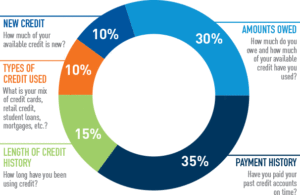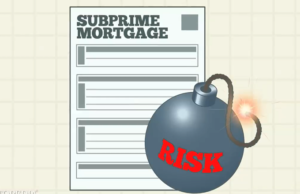Editor’s Note: This post first appeared on the website Make Change as an advice column “It’s Complicated,” which is in the spirit of my occasional “Ask an Ex-Banker” posts. If you have personal finance questions for “It’s Complicated” or “Ask an Ex-Banker,” send me a note!
Dear Its Complicated:
I’m a single fulltime freelancer looking to buy my first house. I’ve read a lot about how daunting the process can be for freelancers and now I’m worried and confused about what to expect.
While I don’t have a corporate gig, I do have nearly a decade freelancing in my industry with a steady income stream. I do have some debt I could pay off before applying for a home loan and am paying off last year’s taxes. Otherwise, I have a solid rental history and enough saved up to put 20 percent down on a modest home in my area.
Given that, what should I be doing now to secure a home loan in six to 12-months? When I’m ready to apply, what should I be prepared for when it comes to proving my income or work status? Finally, how worried should I be about the IRS payment plan and my small amount of debt?
Any guidance would be appreciated!
—
Dear Freelancer,
Congratulations on your imminent leap into homeownership.
You already anticipate that being a freelancer will make getting your mortgage a difficult process. Sadly, I agree. You should expect the worst. And then realize it will be even harder than that. By the end it will seem like they asked for everything except blood samples and your ability to count backwards from 100 by 7s. It’s super-annoying!
And so, may your home-buying mantra be borrowed from recent kerfuffles in the US Senate: #NeverthelessShePersisted.
Done right, homeownership can be the most powerful tool for building long-term wealth available to the middle class. (Emphasis on “done right.”)
In order of importance, your home purchase journey starts with spending a little bit of money this week to acquire your credit scores and reports. Those results will dictate what you do in step two, which is to get “financially fit” in the coming months. Third, I’ll describe how you can—and should—take proactive steps with a mortgage banker or broker, even before shopping for your house.
Step one: Credit report and score
Your first step is to order your credit reports and credit scores from each of the three credit bureaus, Experian, Equifax, and TransUnion. Each bureau offers a version of a 3-in-1 report combining all your information for about $45. You could also purchase your reports and scores separately for around $15 a pop. And while you could stick to one bureau’s credit report and score, keep in mind that reports can vary widely from each bureau. If you don’t check out all three, you could miss an error or negative information only reported by one bureau.
 Alternatively, by law, you’re entitled to a free copy of your credit reports from all three credit bureaus once per year through AnnualCreditReports.com. But this only gives you the reports, and you’ll have to order your credit scores separately. Which is annoying. So skip it, and pay to get your score.
Alternatively, by law, you’re entitled to a free copy of your credit reports from all three credit bureaus once per year through AnnualCreditReports.com. But this only gives you the reports, and you’ll have to order your credit scores separately. Which is annoying. So skip it, and pay to get your score.
I’ll explain the importance of this step in a moment, but first, a few words of caution about buying your report and score. These three credit bureau’s websites seem to purposefully and maddeningly muddle your attempt to buy your report and score just once. Their websites steer you toward some “monthly credit monitoring,” at much more then $15 over time. #Resist all that nonsense. Also, steer clear of “free credit report” offers you see online because that does not include your actual numerical score. And finally, be leery of any site offering free credit scores or credit monitoring. Many of these sites simply estimate your score, and you need your true FICO score to move on to steps two and three. (For more on FICO scores, may I suggest Part 1 and Part 2 of an explainer by me?)
A big part of your future mortgage lender’s decision will ride on this information. You need to know how they will view you. Applying for a mortgage without knowing your score would be akin to applying to college without knowing your own SAT scores. You’d be flying blind and would probably apply to the wrong places. Like the SAT for college admissions offices, your FICO score is the sorting mechanism that mortgage lenders use to figure out how to treat your application.
Generally, if you score a 720 or above, every mortgage lender in the country will welcome your application with open arms and its best terms and rates. Your application will be directed to a “prime” mortgage. If you score in the mid-600s to 720, you can still qualify for a normal-ish mortgage, but expect the cost to borrow money to be higher, possibly even significantly higher. If you score a mid-600s or below, you will be relegated to a “sub-prime” mortgage with either a punitively high interest rate or a low teaser interest rate that will adjust upward and likely become unaffordable later.
Of course, all of the above is complicated somewhat by your freelancer status. Even if you have sterling credit, read step three carefully for information about income verification.
Step two: Getting financially fit
Reasonable people could disagree on the following, but I would counsel most people with sub-prime scores to wait on buying a house. You specifically mentioned outstanding debt as well as an IRS agreement in your financial profile. A payment plan with the IRS generally won’t appear on your credit report unless you’ve defaulted on the monthly payments. If you have missed payments, or the IRS has placed a lien against you, this could push your credit score below prime. Carrying debt can also drag your score down, especially if you have late payments or have had any debt assigned to collection agencies in recent years.
 Borrowing on a sub-prime mortgage will add 5 to 10 percentage points to the cost of your loan, or let’s say an initial $10,000 to $20,000 per year on even a small $200,000 mortgage. Just five years of that extra cost and you’re $50,000 to $100,000 poorer than you need to be. A better plan would be to settle all your outstanding debt problems in the next year. Later, with collections or tax liens in the rear-view mirror, the passage of time will heal your credit score. Waiting a year or two to build your FICO score up before buying the house will leave you wealthier in the long run.
Borrowing on a sub-prime mortgage will add 5 to 10 percentage points to the cost of your loan, or let’s say an initial $10,000 to $20,000 per year on even a small $200,000 mortgage. Just five years of that extra cost and you’re $50,000 to $100,000 poorer than you need to be. A better plan would be to settle all your outstanding debt problems in the next year. Later, with collections or tax liens in the rear-view mirror, the passage of time will heal your credit score. Waiting a year or two to build your FICO score up before buying the house will leave you wealthier in the long run.
If you’re already in the prime range, then you can accelerate your timeline. You mentioned worrying about your IRS payment plan and small amount of debt. If the IRS imposed penalties on you in the past, or you are subject to an IRS lien, certainly I’d recommend sorting that out before taking on the obligation of a large mortgage. If you have a good score, however, that indicates to me that you’re currently paying all tax plans and debts as agreed, without penalties. In that case, they are unlikely to inhibit getting a mortgage.
Mortgage lenders expect borrowers to already have some debts when they apply to a mortgage— whether student loans, car loans, or credit card debt—so a small amount of debt won’t deter them. You might feel better being debt-free, but it’s not necessary in order to get approved for most mortgages. The way the bank views your small amount of debt is like this: $10,000 in cash in the bank with $5,000 in debt gives you a net worth of $5,000. From the lender’s perspective that’s nearly the same exact position as if you had $5,000 in cash and zero debts. Banks won’t sweat the small debts.
Step three: Getting pro-active with a mortgage broker or lender
Before you shop for your house, every realtor will recommend you get pre-approved for a loan from a mortgage lender, for good reason. That pre-approval, including the maximum amount you can borrow, let’s you make an offer on a house with the confidence that you can actually buy it, and that makes you a much more attractive buyer. Without that pre-approval, you could expect realtors and sellers to take you less seriously when you make an offer to purchase a home. During the pre-approval process, you will present your assets, income, and employment, as well as debts. You will specifically want to explain your freelancer status to whoever works on getting your pre-approval.
 Since your income has been steady for a few years you should be able to get pre-approved. But expect that the lender, when it comes time to actually extend you a loan, will ask extremely invasive questions about your work and income . One to two years of federal tax returns will be the start of their inquiry. I can’t anticipate all of the ways a bank will try to vet your consistency of income, but be prepared to prove out anything you claimed as income.
Since your income has been steady for a few years you should be able to get pre-approved. But expect that the lender, when it comes time to actually extend you a loan, will ask extremely invasive questions about your work and income . One to two years of federal tax returns will be the start of their inquiry. I can’t anticipate all of the ways a bank will try to vet your consistency of income, but be prepared to prove out anything you claimed as income.
Here’s an extreme example, courtesy of the editor of Make Change who bought a home with her freelancer husband in 2012, right after she’d transitioned from freelance work to a fulltime job: a few years’ worth of statements from every bank account they held individually and jointly, a letter from her new boss stating he anticipated her working there for the long-term (#awkward), verifying every check deposited for the past several months, including personal gifts in amounts of $50 or less. And that wasn’t everything, in total, she turned over two banker’s boxes worth of documents to her lender, and that was with a credit score in the prime range. Just remember to deep breathe your house buying mantra #NeverthelessShePersisted.”
Thankfully, the further out from the recession we get, the fewer of these burdensome verifications seem to be required. Still, it’s best to be over-prepared, even if it’s about as fun as a lumbar puncture. Hopefully it will all be worth it. Good luck!
A version of this “Ask an Ex-Banker” post appeared as a post for a semi-regular advice column “It’s Complicated” in the personal finance website Make Change.
Please see related posts:
Rent v. Buy – The Simplest Answer
Post read (264) times.





